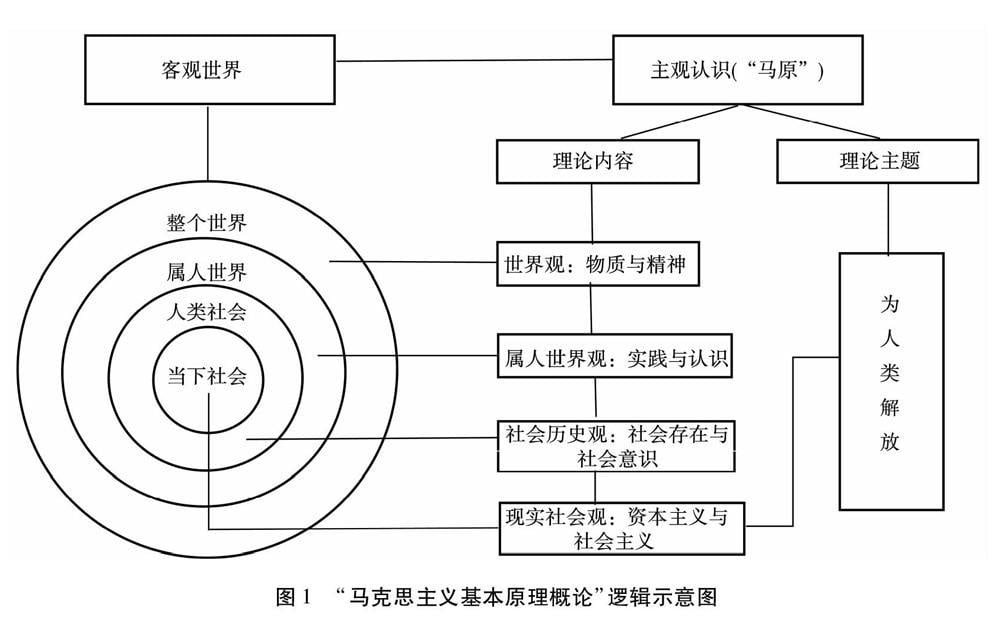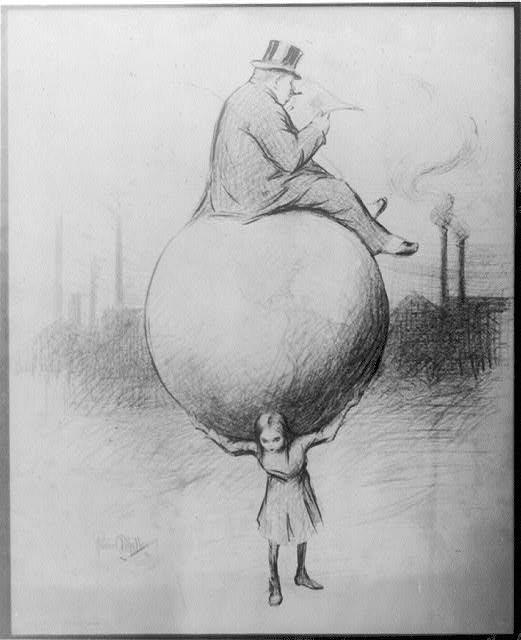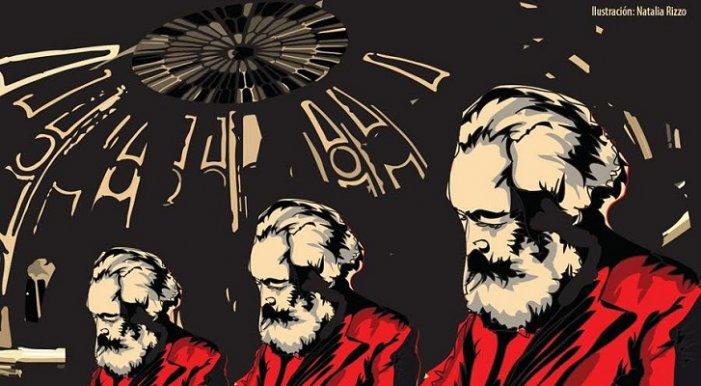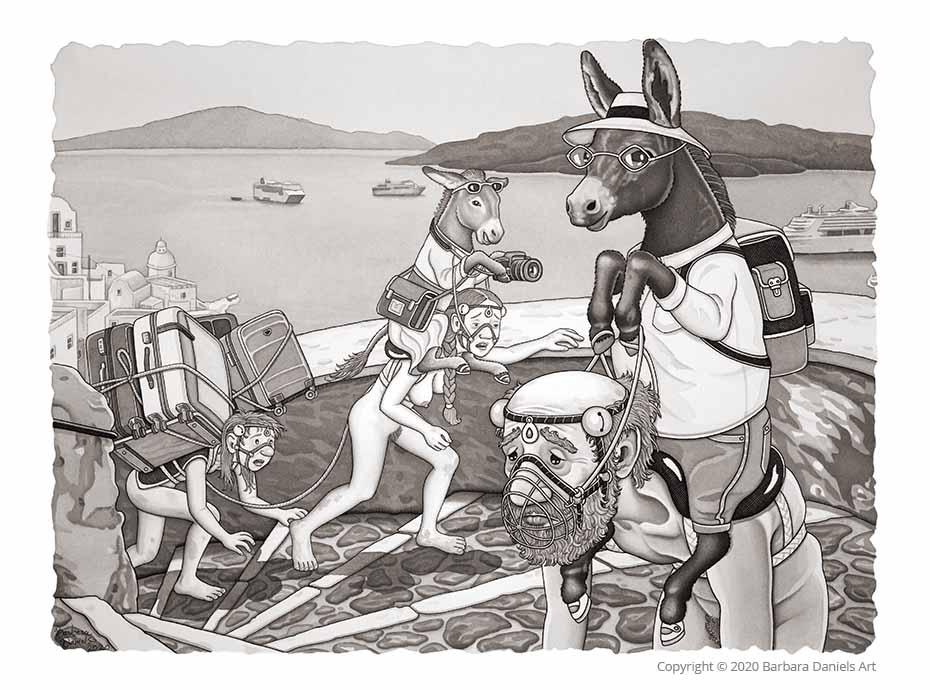Beyond the Misconceptions of Marxism

The Basic Attitude Towards an Idea#
Russell once mentioned in an interview and also stated in his own book about Marx. "Marx, like everyone else, believed that his doctrine was true; he did not think it was merely the expression of a peculiarly Jewish emotion of sexual rebellion in the German middle class of the mid-nineteenth century. What can we say about this contradiction between the subjective and objective views of a philosophy?"
Everyone's thoughts are precious to themselves, even if their theories are despised by others, they still cherish them. However, if anyone believes that their theory is the absolute truth, they may have reached the limit of their thinking. However, no matter how closely thoughts align with the objective world, the gap between subjectivity and objectivity cannot be crossed. The more a theory involves, the wider its scope, the more difficult it is to grasp. And when it comes to social sciences that involve human subjects, even philosophy, if they want to establish standards applicable to the objective world, they must consider the gap between subjectivity and objectivity.
In addition, a person's thinking is a constantly evolving process. I don't even know where my understanding will go tomorrow. The only thing I can be sure of is that what I write is just a fleeting fragment of my ever-evolving thoughts, a thing of the past.
Of course, a person's thinking is also influenced by linguistic techniques, and so on. Therefore, it is normal to have a critical attitude towards any kind of thinking.
Views of Critics of Marxism#
I have seen many people criticize Marxism, and they can be classified into the following categories.
-
They believe that Marxism is not part of Chinese traditional culture and is a foreign colonial ideology. This viewpoint is widely spread on the internet, and a student used this argument to criticize a political class. Historically, the thoughts of the pre-Qin philosophers were indigenous to China, but later Buddhist and natural human rights ideas came from outside. The historical origin cannot be used as the starting point for criticizing a theory.
-
They believe that Marxism is very vague, simple, and easy to understand, and is suitable for unifying people's thinking. "Material determines consciousness, and consciousness has a dynamic counteraction to matter," and then everything needs to be "concretely analyzed," and the "main contradiction" needs to be grasped... These expressions do reflect the hollowness of Marxism, but the theory itself is hollow. Even so, it can only be said that Marxism is useless.
-
They believe that Marxism is too dogmatic in its own views and cannot be questioned. An ideology is a theory, and human cognition is limited. If one believes that their views cannot be refuted, they have closed off the path to revising their theory. Reserving the path to revise theory itself is a way of respecting the objective world.
Reflections on the Views of Critics#
The above examples are not comprehensive, but they are the majority of cases I have personally encountered. These criticisms are highly political and often like to cite the rise and fall of communist countries, various disasters and death tolls, using a bundled sales method to highlight the harmfulness of Marxism as a thought. Therefore, these critics do not attempt to directly refute Marxism, but rather criticize it on the periphery of the theory.
Just like the Zeno paradox of Achilles and the tortoise, common sense tells us that Achilles can certainly catch up with the tortoise, but common sense alone is not enough to overturn a theory. As the saying goes, "to solve a problem, you must understand the problem." Only through magic can magic be defeated. Therefore, when it comes to Marxism, if one wants to criticize it, the most thorough method is to confront it directly.
Attempting a Direct Critique#

I am not concerned with the various ontological, epistemological, and methodological aspects of Marxist thought because an idea is always safe at the level of thought. However, when a theory attempts to touch the external world, we must examine it and find the bridge it tries to establish between subjectivity and objectivity.
The Bridge for Marxism to Intervene in the World#
This bridge is the analysis of economic laws by Marxism, which discovers surplus value and criticizes the system that upholds the private ownership of the bourgeoisie, as well as the political system and other superstructures created by the bourgeoisie to maintain private ownership.
Marxism believes that to solve the exploitation of bourgeois private ownership, it is necessary to change the material foundation of bourgeois private ownership and replace it with public ownership, thereby taking back the surplus value from the hands of the capitalists and promoting the development of human labor. In the absence of exploitation, the transition to communism is only a matter of time.
The Reasonableness of Marxism's Critique of Capitalism#
The most significant difference between capitalism and feudalism is the level of economic development. In the feudal era, even if peasants suffered from hunger, they did not work at night. However, in the capitalist era, with the exploration of nature by humans, more and more things that can satisfy people's material needs have emerged. The original simple production relations have been replaced by complex social relations brought about by technological progress.
Initially, peasants relied on land for survival, and the king owned the land through political means. This political system was relatively stable and mature. However, as more products that could satisfy people's needs emerged, the existing social system became outdated and did not effectively control the new means of production, while the emerging bourgeoisie gained economic power. The economic relationship between the king and the land was impacted. The bourgeoisie sought to establish economic relationships through laws.
In England, after the Glorious Revolution, the bourgeoisie succeeded. Although the French Revolution went through twists and turns, the revolution solidified the bourgeoisie's position. Liberal capitalism developed rapidly during this period. However, capitalism encountered its first problem, the limit of exploiting labor.

In 1848, the "Communist Manifesto" was published, and the French Revolution broke out in 1789, while the American Revolution began in 1775. In the half-century of rapid capitalist development, Marx saw the shortcomings of capitalist private ownership. The greatest beneficiaries of the revolution were a small number of bourgeoisie, and as capital continued to accumulate, a tiny number of bourgeoisie controlled immense wealth. At this stage, the rights of laborers were not protected, and it was only natural to want to shatter bourgeois private ownership and its political system.
But in the 20th century, labor rights were protected. Suffrage gradually expanded. The system of labor unions protected workers, and the right to strike was guaranteed... A balance was reached between capitalists and laborers.
But does this mean the victory of capitalism? The essence of capitalist exploitation of surplus value remains unchanged, and the trend of a few individuals controlling a large amount of wealth still exists. Capitalism will always have this contradiction. This is the reasonableness of Marxism. So modern people like to talk about chaebols in South Korea and the swamp in the United States.
The Unreasonableness of Marxism's Critique of Capitalism#
There is no perfect thing in the world. Capitalism has achieved human social development by stimulating desires and utilizing the development of science and technology, and has pacified the outbreak and expansion of contradictions between labor and capital during the development process. Capitalism is not a product that appeared out of thin air but rather a natural development in human society, reflecting the laws of human development and possessing conservative characteristics.
Capitalism is indeed imperfect, but if we want to rectify human society, it does not necessarily mean socialism is the solution by replacing private ownership with public ownership.
In the article "Exploring the Material Basis of a 'Communist Society'," I refuted the claim that "private ownership is the root of all problems" and proposed that "the decentralization and non-concentration of the material basis are the foundation of establishing a non-exploitative society."
Public ownership leads to the separation of individuals from material resources, weakening individuals' ability to survive.

The Logical Starting Point for Marxism's Intervention in the World#
Aristotle once proposed the concepts of "distributive justice" and "corrective justice." The former achieves fair distribution of wealth through legislation and is primary. The latter is only a supplement to distributive justice and is often achieved through the judiciary to restore justice.
Marxism believes that capitalist private ownership allows surplus value from exploitation to flow to the capitalists, which is essentially an understanding of the unfair distribution of benefits. The viewpoint it puts forward is to achieve a redistribution of benefits through public ownership, by artificially changing the economic foundation.
Private ownership, as a long-standing system, has already completed the distribution of wealth through a one-time allocation without intermediaries, naturally and without obstacles. Public ownership requires the mediation of the state, making it an unnatural and costly system. It is precisely because public ownership requires an intermediary that rulers are enthusiastic about Marxism. They do not care about other materialistic worldviews. Many high-ranking officials are enthusiastic about seeking gods and worshiping Buddha, which is a prime example. As the saying goes, the earth is just a grain of sand.
Reflecting on the Division of Interests from an "Objective" Perspective#
Since the 20th century, the law has indeed protected the rights of laborers, but this is not thanks to the law but rather a reflection of the power of labor. The law only provides rules for resolving justice and avoids unnecessary sacrifices. Changing the current state of exploitation by replacing private ownership with public ownership is a superficial system.
Guided by the Marxist consciousness of the counteraction of matter to consciousness, it is certainly reasonable to transform the material foundation of public ownership. However, these people ignore the objective laws and do not know where the material basis of private ownership lies. How can private ownership be changed? Using the counteraction of matter to consciousness is a dangerous method, but these people are full of confidence.
Just as there are cases of information leakage in reality, why? Because information becomes vulnerable to leakage when it is collected and concentrated. Just like the various ethical issues in scientific experiments, these boundaries will eventually be broken. For example, the control of drugs, this control will also become increasingly ineffective. For example, a secret is only a secret if only one person knows it, but it is no longer a secret if two people know it. Because of information leakage, conducting experiments, and the manifestation of certain characteristics through drug use, it is similar to the increase of entropy. But it is not an increase in entropy. Our model of estimating these things is that the more easily something is done, the more the motivation to do it increases or does not decrease, as time goes on, it will definitely be done.
So if we want to achieve our goals, the only way is to never tell others, not to voluntarily surrender our information, and allow and regulate such experiments to create a healthy new type of drug. The above are attempts to solve problems using an objective method. Maybe I can't find the right words, so I can only use the word "objective."
Similarly, if we want to solve the problem of human exploitation, the problem of surplus value in private ownership, we must look at whether private ownership is becoming easier or whether public ownership is becoming easier in the long run. The root of this private ownership lies in the relationship between individuals and groups. The more individuals are unable to independently complete increasingly complex tasks, the more cooperation is needed to promote progress, and exploitation is the cost of cooperation.
Or, it is the role differentiation brought about by social division of labor, the new evolution of humanity brought about by division of labor, at least in the field of wealth. Or it is this trend...
Conclusion#
Pointing out the mistakes of others is easy, it is just an arbitrary replacement of private ownership with public ownership. But how to solve the problem of human exploitation, whether we need to solve the problem of human exploitation, whether humans will exploit animals, and when humans will be exploited by animals... These are the most confusing and even frightening questions.

If one understands this, perhaps there would be no need to criticize Marxism, because criticism or praise itself may be a joke.
July 19, 2023, afternoon